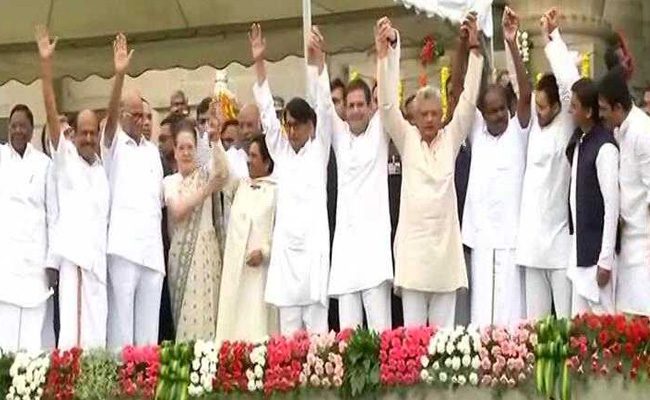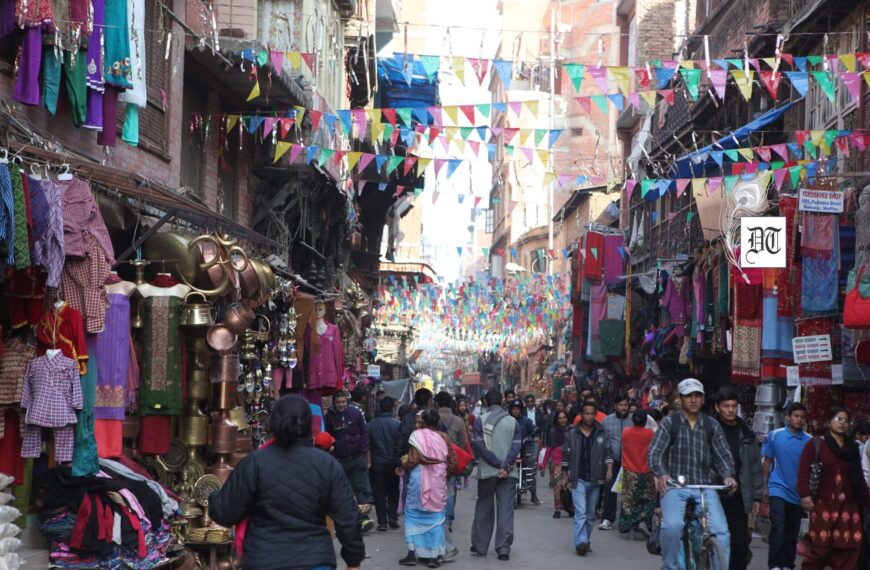The regional parties and their leaders are facing criticism for responding to the Congress call to come together for defeating the BJP in the 2019 Lok Sabha elections. This is mostly done by questioning the longevity of such alliance. The regional parties are actually joining hands to stop the tyranny and politics of violence let loose by the Sangh elements. A report, for Different Truths.
Regional parties are often seen from the political perspective of the national parties and their leaders projected as villains operating in a narrow space with their vested interests. Undoubtedly they need to be criticised for their wrongdoings, but if they raise local issues and walk in and out of alliances for the sake of those causes, they don’t deserve condemnation.
Once again the regional parties and their leaders are facing criticism for responding to the Congress call to come together for defeating the BJP in the 2019 Lok Sabha elections. This is mostly done by questioning the longevity of such alliance. The regional parties are actually joining hands to stop the tyranny and politics of violence let loose by the Sangh elements. The electoral experience of the last four years has convinced the BJP that if it has to come back to power these regional outfits have to be outmaneuvered so that they fight among themselves.
The “rise” of regional political parties is an undeniable fact of life in the Indian political scene. Their rise is a testament to pluralism becoming a primary component of secular governance and polity. The rise of regional parties has irrefutably transformed the nature of electoral politics in India.
A common myth about regional parties is that their rise has affected the stature of national parties. In recent times while the number of regional parties contesting elections has substantially increased it has also witnessed shrinking margins of victory in parliamentary elections. The fifteenth Lok Sabha boasted 38 parties.
An in-depth study of the formation of regional or state parties during last 40 years would make it absolutely clear that people were forced to launch their political forum after the national parties refused to reflect regional concerns. Discrimination and alienation have been primarily responsible for the formation of regional parties. And these parties were generally formed due to factionalism in the Congress. The state leaders who were concerned about the causes of the local people often found that the national Congress leaders were not giving due consideration to issues of local and regional concern, and they would then come out of the party and launch their own outfit so as to uphold the aspirations of the local people.
Regional parties have broken the stranglehold of the national parties and by doing so helped usher in a semblance of competitive federalism. But often the regional leaders basking in the glory of competitive federalism fail to give due consideration to the national parties. For instance, the Telangana chief minister is ready to join Mamata and others but not with the Congress. The resistance may not be due to ideological compulsion, but rather past bitterness with Congress.
No doubt the regional parties represent the aspirations of their people, but at the same time, they have to be pragmatic. Emergence of regional parties as major centers of power is one of the most important developments in the country’s post independence history. And they have been coming up at regular intervals playing different roles in the country’s parliamentary democracy.
A major trait of all these parties is that they are controlled by one leader and his or her family members, who wield considerable clout in the management of these parties. But to succeed in the political perspective of India, the regional parties must have an agreed programme that will have the support of all the disparate regional groups. Some of these parties which are now willing to share space with the Congress had allied with the BJP in the past.
For the Opposition to succeed, it is imperative that they come up with a positive agenda rather than launch a negative campaign against Narendra Modi. The Opposition parties appear to have finally realised that it is the divisions among them that have helped the BJP win state after state.
Arun Srivastava
©IPA Service
Photo from the Internet





 By
By

